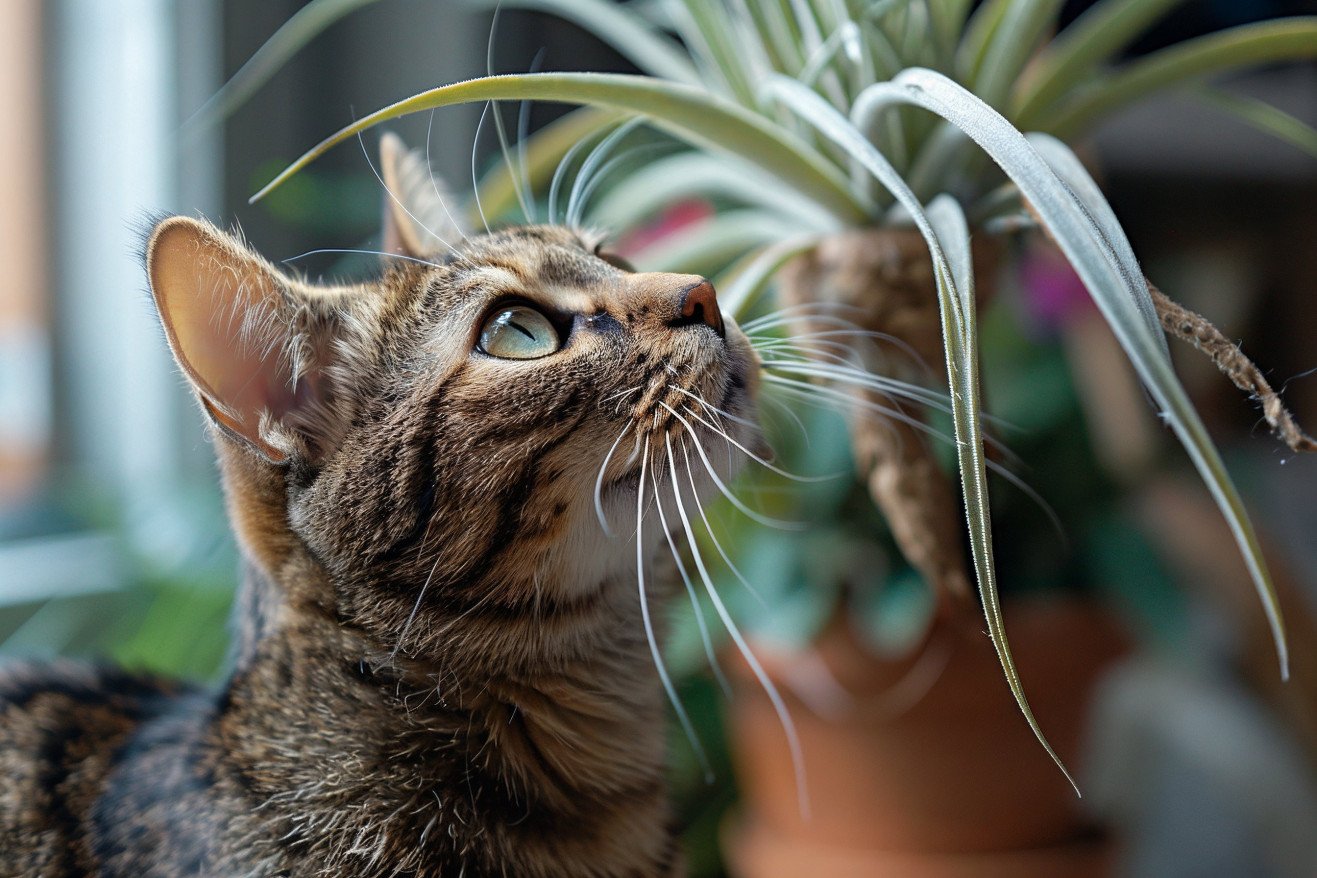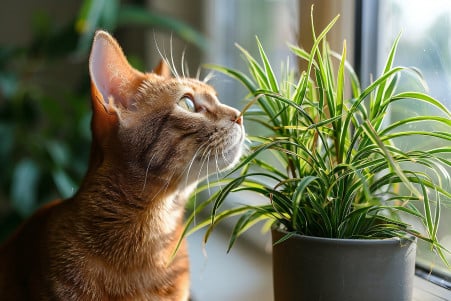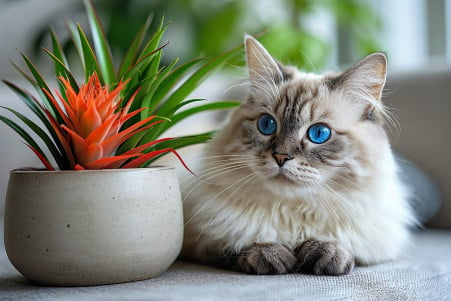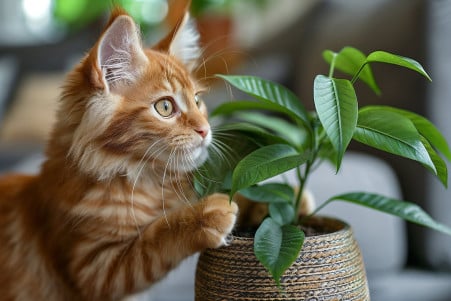Are Air Plants Toxic to Cats? Keeping Your Feline Friend Safe
9 May 2024 • Updated 9 May 2024

Air plants are unique and easy to care for, which has made them a popular choice for indoor plants, but can you have them around your cat? Air plants are not toxic to cats and are a great option for pet parents who want to bring plants into their home without worrying about their pet getting sick if they decide to take a bite, although eating a lot of the plant can still lead to an upset stomach.
This article will review information from veterinary professionals and plant experts to help you better understand the potential dangers, if any, of having air plants in a home with cats. By learning about their chemical makeup and reviewing anecdotal evidence, you will be able to determine if these interesting plants are a real concern and feel confident bringing them into your home. Read on to learn the truth about how toxic air plants are to cats so you can make sure your furry friend stays safe.
Are air plants toxic to cats?
Cat Allergies and Plant Sensitivities Explained
Although air plants are generally non-toxic, it's important to note that cats can be allergic or sensitive to a number of things, including plants. Allergies and sensitivities can show up in a variety of ways, including skin issues, respiratory problems, and stomach upset.
One of the most common allergies in cats is atopic dermatitis, per VCA Animal Hospitals, which causes extreme itchiness in response to environmental allergens like pollen and dust mites. Contact allergies are less common but can cause skin issues in response to things like shampoos and bedding.
Although air plants are generally safe, some cats may have sensitivities or allergies to certain plant materials. Per Hepper, while air plants are non-toxic, the moss that they are often planted with may contain small amounts of potentially toxic substances.
That said, it's important to keep a close eye on your cat when you bring new plants into your home to make sure they don't have any sensitivities. If you notice any symptoms like vomiting, diarrhea, or excessive itching, it's best to take your cat to the vet to be safe.
Other Pet-Friendly Houseplants
Even though air plants are safe, it's still best to keep them out of the way of pets to avoid any potential problems. The Spruce lists several non-toxic houseplants that are great for cat owners, such as Boston ferns, African violets, and orchids. Spider plants, bamboo palms, and ponytail palms are also safe for cats, but they can be toxic to dogs.
Make sure to research any new plants to see if they are toxic to cats, dogs, or both, and always keep a close eye on your pets when you bring new plants into your home. You can use the ASPCA's list of toxic plants as a reference and ask your vet for help to make sure that your indoor garden is safe and pet-friendly.
How to Keep Air Plants Safe From Cats
Even though air plants are safe for cats, it's best to keep them out of your pet's reach to avoid any potential problems. 7th Heaven Cats recommends hanging air plants in high places or using physical barriers like chicken wire or plastic screens to keep cats away from them. You can also use deterrents like citrus, vinegar, or sticky substances to discourage cats from getting too close to air plants, since cats are known to dislike these smells and textures.
You can also offer cats other plants, such as catnip, cat grass, or cat-friendly herbs, to distract them from air plants, notes The Spruce. It's also a good idea to supervise cats around plants and redirect their attention with toys or treats to help them form positive associations and prevent them from chewing on your air plants.
Air-Purifying Benefits of Houseplants for Indoor Environments
In addition to their aesthetic appeal, houseplants can also purify the air by removing chemical contaminants from indoor spaces. Per BeChewy, plants can help eliminate toxins like benzene, formaldehyde, and trichloroethylene that are emitted by synthetic building materials. By doing so, air-purifying plants can help reduce the effects of indoor air pollution, such as eye irritation and breathing problems.
Although air plants can purify the air, their small size may limit their impact compared to other, larger houseplants. As the NASA study cited by BeChewy notes, air plants can be combined with other air-purifying houseplants that are safe for pets to create a more healthful and aesthetically pleasing indoor environment.
Conclusion: How to Safely Enjoy Air Plants With Cats
Although air plants are generally non-toxic to cats, it’s still important to be cautious and keep them out of your pet’s reach. According to the Air Plant Design Studio, Tillandsia air plants are not toxic to dogs and cats. However, they can be a choking hazard, especially for smaller pets.
While air plants are non-toxic, they can still cause digestive upset if eaten in large amounts, including vomiting and diarrhea, as mentioned in a response on JustAnswer. The cat’s digestive system is not equipped to break down plant material, so it’s best to keep your cat from eating air plants.
It’s best to monitor your cat’s interactions with air plants and consult your vet if you have any concerns. Offering safe, non-toxic houseplants and using methods to keep cats away from air plants can help ensure a happy, healthy living environment for you and your cat.


